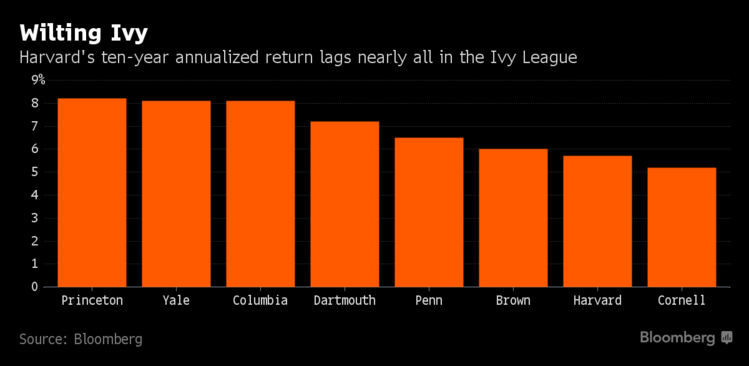Eric Mindich has been good to Harvard, and, until recently, Harvard has been good to him.
Mindich, class of 1988, landed a coveted seat on Harvard’s endowment board after he become a partner at Goldman Sachs in the 1990s. In the 2000s, when he left the firm to start a hedge fund, the university invested $500 million. Later, Mindich returned the favor, donating $15 million for scholarships.
But now hard financial reality has distanced Harvard and this Harvard man -- along with others who once made lucrative careers investing for the college. Earlier this year, the endowment said it was withdrawing some of its money from Mindich’s investment firm, Eton Park Capital Management, because of 2016 losses, according to people familiar with the matter. In March, Mindich said he was closing his fund.
The redemption illustrates Harvard’s commitment to an overhaul of its $35.7 billion endowment, the largest in higher education. Like many of its rivals, Harvard has long sought to reap rewards from its gold-plated Rolodex, including the money managers among its directors, employees and donors. Yet, for all its connections, its returns have been lackluster.

Harvard’s pullback from Mindich also underscores the shakeout to come as an outsider seeks to overhaul the fund. Harvard’s board has instructed its new endowment chief, N.P. ‘Narv’ Narvekar, to rebuild the organization and its portfolio. In his first six months, Narvekar has sought to unload a number of investments, from private equity to real estate to natural resources.
“This is where it’s to Harvard’s advantage to bring in a new broom to sweep clean,” said David Salem, chief investment officer of Windhorse Capital Management in Boston. “It shouldn’t matter what relationship a money manager has to the university.”
Quick Action
The 11-member board overseeing Harvard’s endowment is pushing the new CEO to act quickly, according to a person familiar with the matter. Narvekar, who started in December after more than a decade running Columbia University’s top-performing fund, plans to slash Harvard’s 230-person staff in half by the end of this year and shift more assets to outside fund managers. Harvard declined to comment.
Narvekar installed a new team, hiring three people who worked for him at Columbia’s endowment and a chief investment officer he knows from his days at the University of Pennsylvania. The outsiders, working with staffers who survived the purge, have been scouring the portfolio, looking for funds they don’t like, as well as discovering new ones that look more promising, according to people close to the endowment.
Under Narvekar, Columbia often sought out esoteric quantitative strategies. By contrast, Harvard built its hedge fund strategy around star portfolio managers, many of whom had worked for the endowment in the 1990s.








